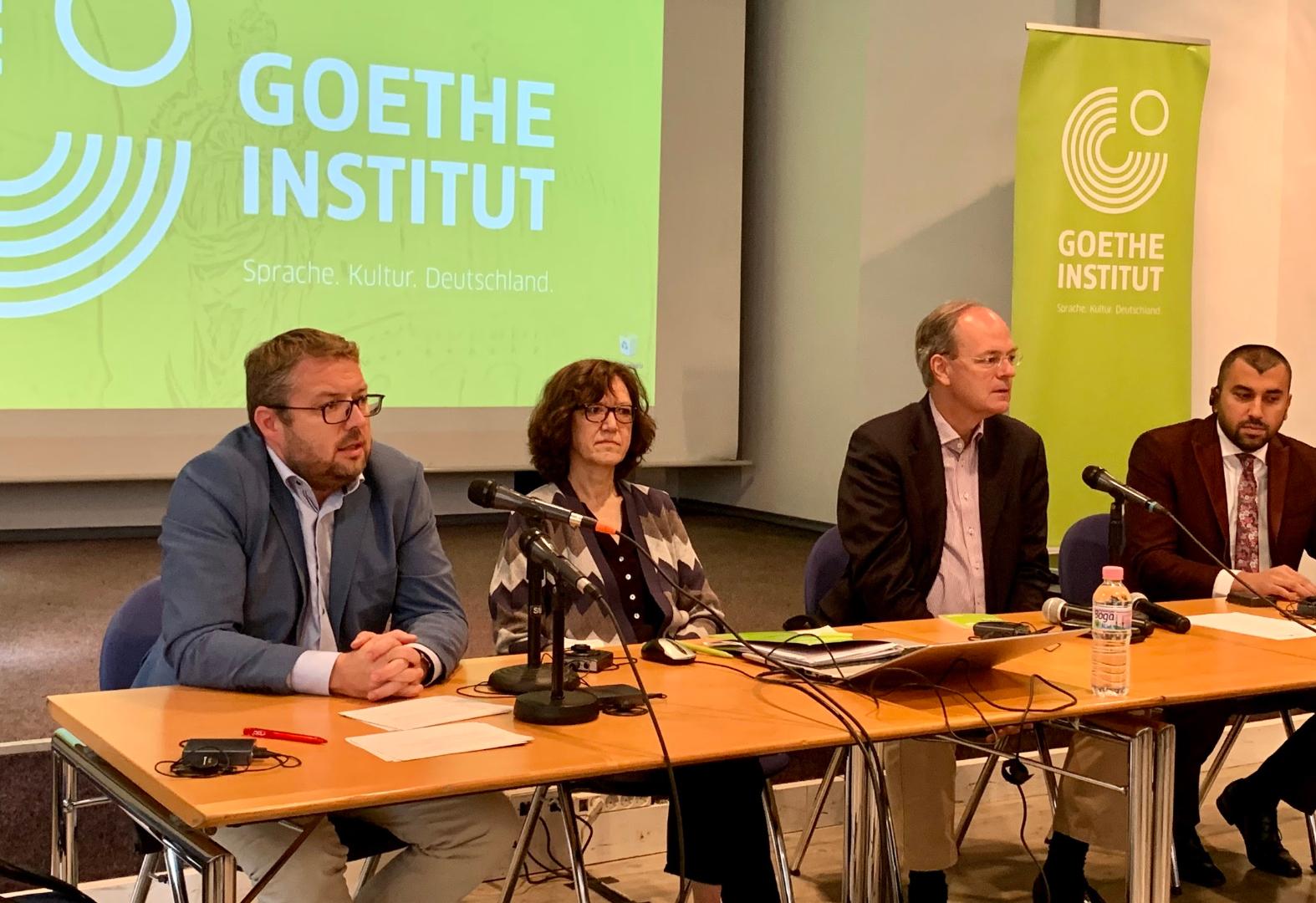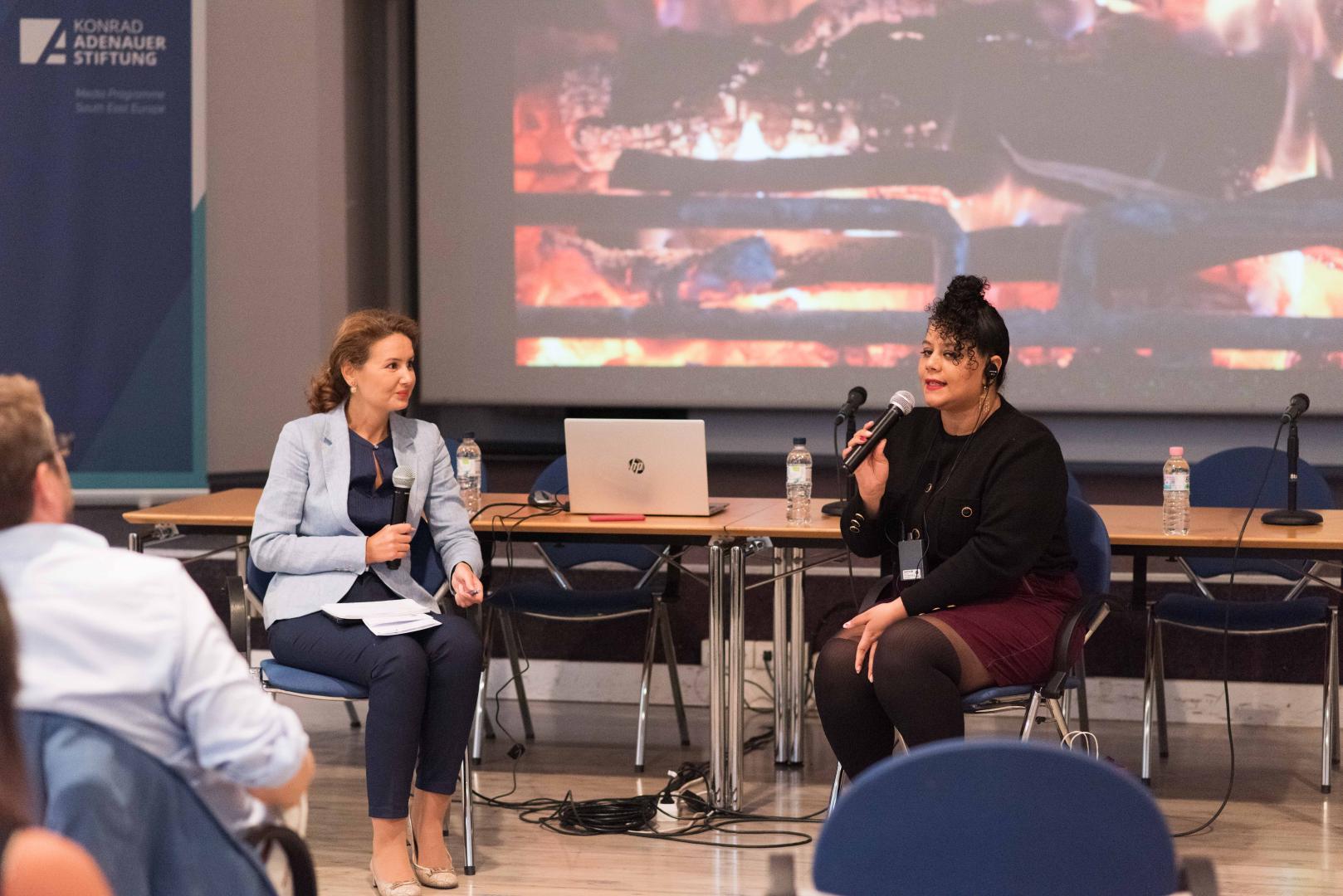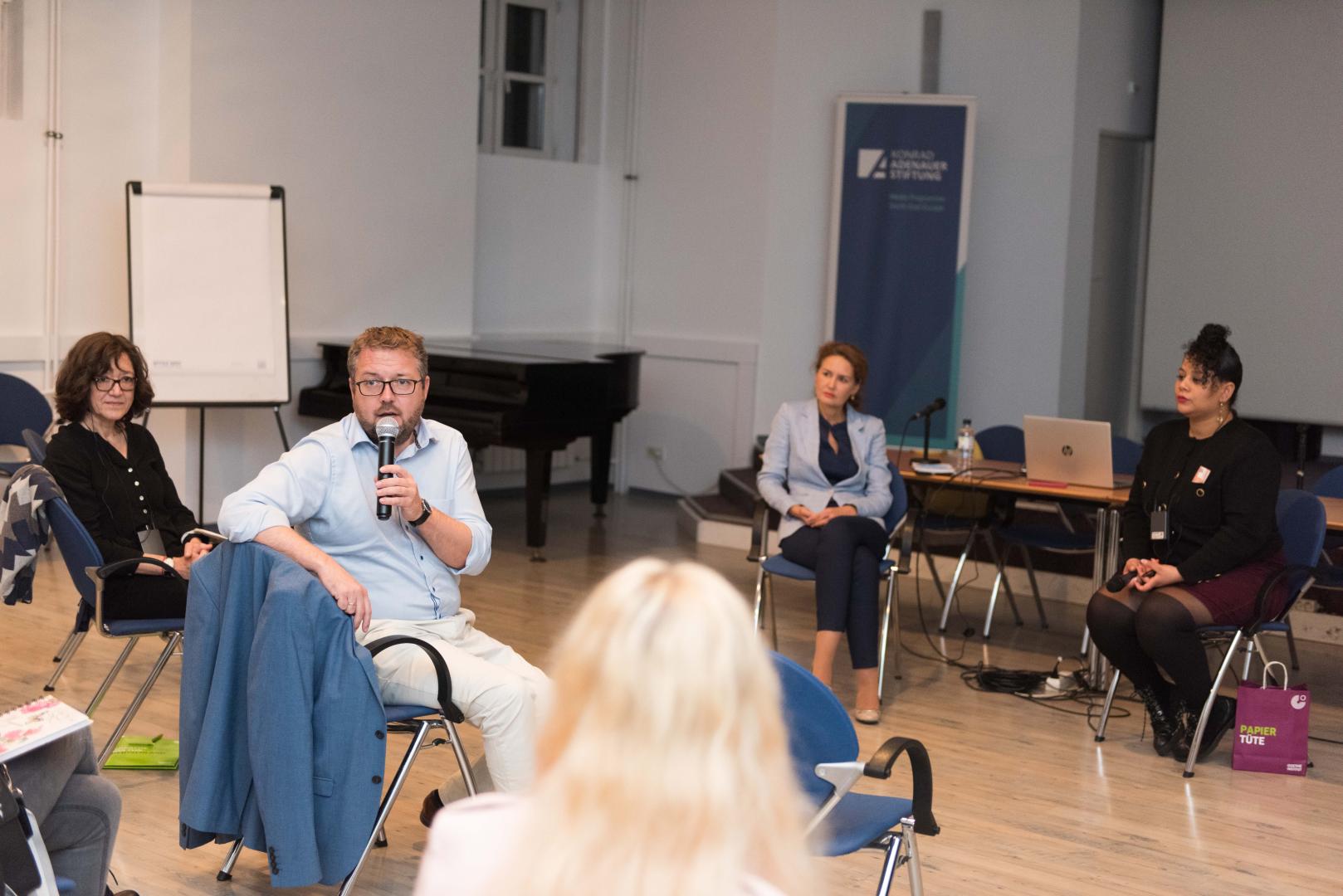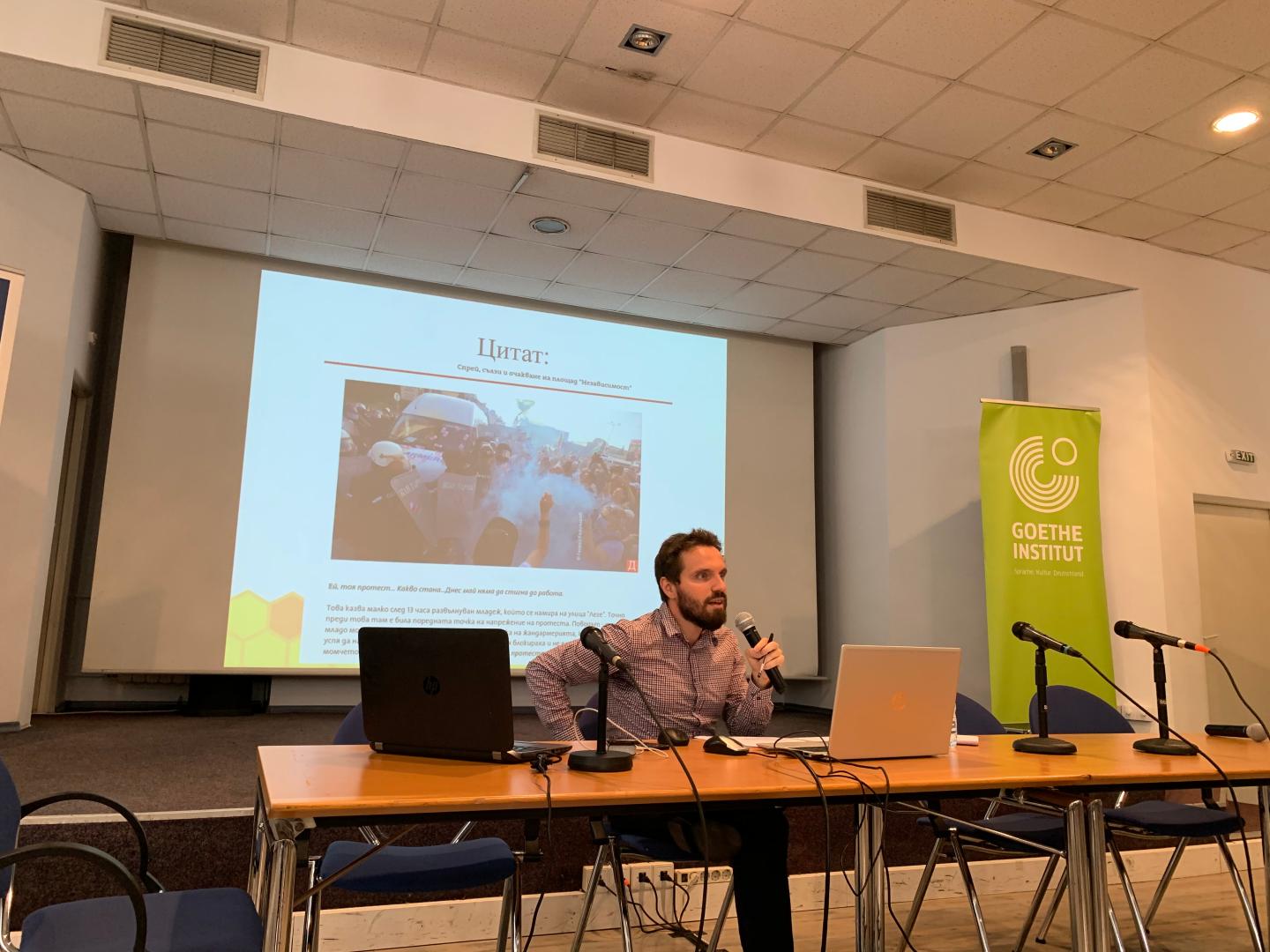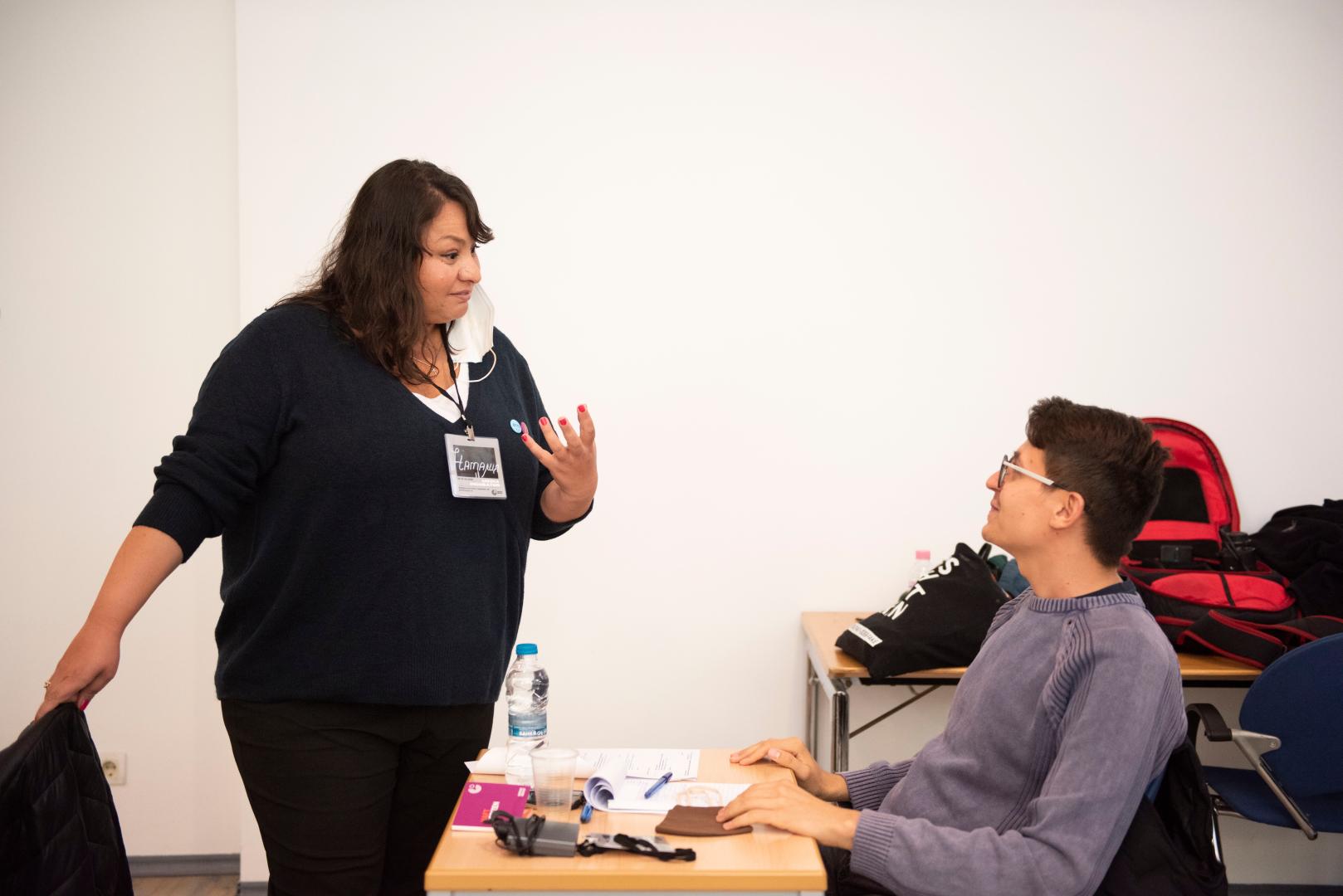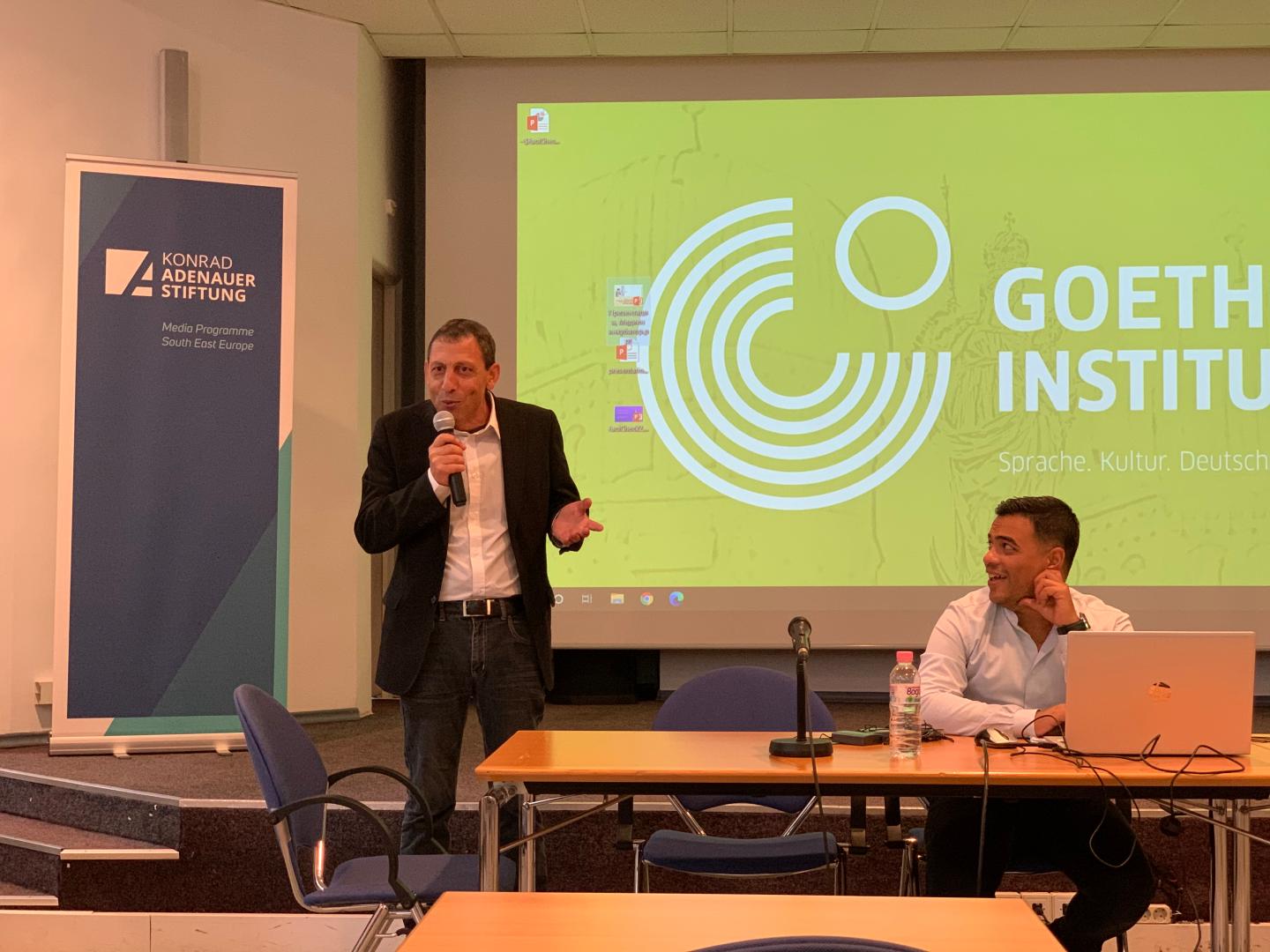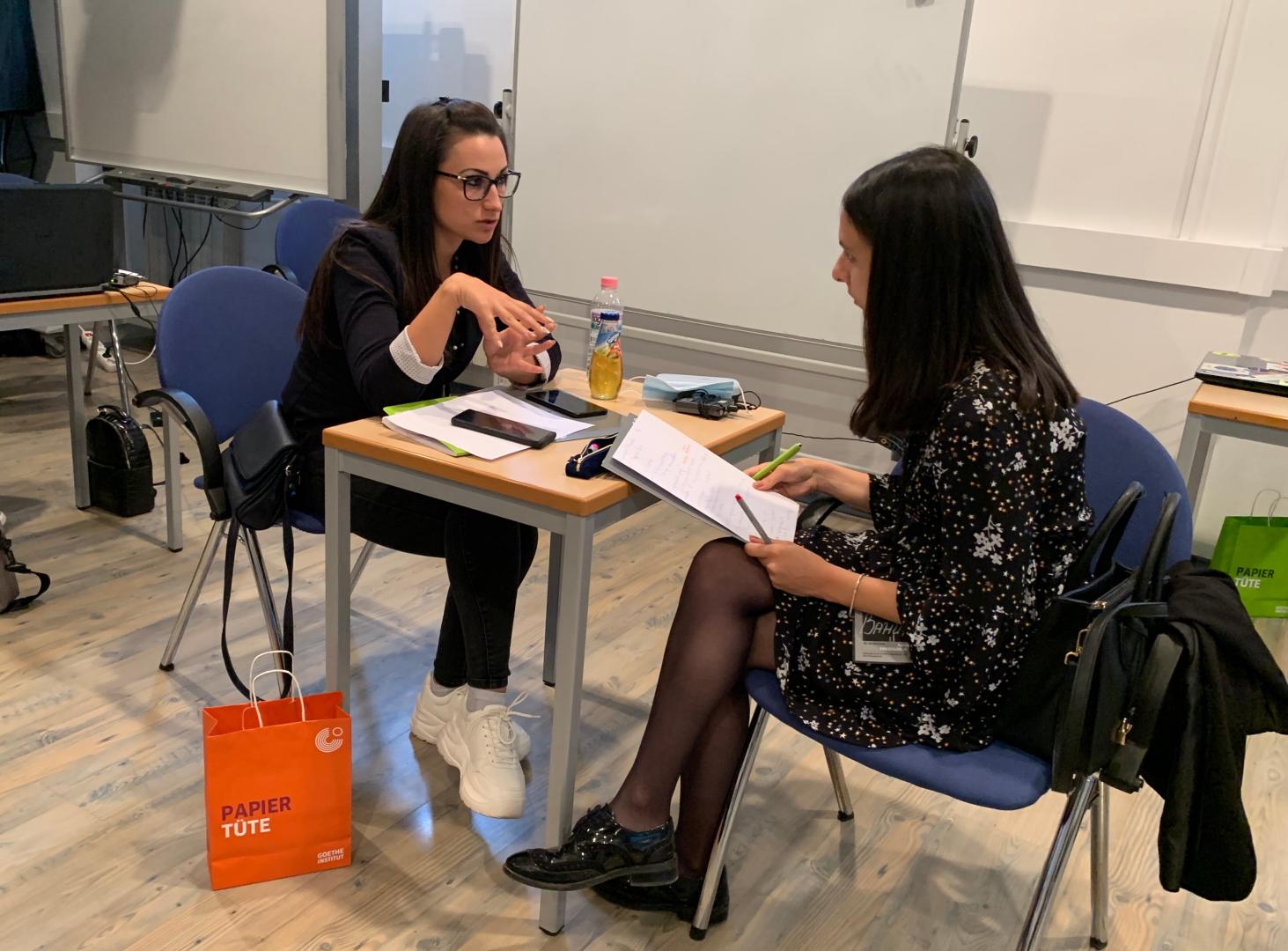Fifteen talented and socially engaged journalists from Bulgaria spent three days together, learning from experienced colleagues, exchanging experiences and networking with one another.
The main focus was on inclusion and improving the integration of minorities in society. "It is not only important that minorities appear in journalistic reports - it is especially crucial that they are integrated as journalists in the editorial teams", stated Hendrik Sittig, Director of the KAS Media Programme South East Europe in his welcome speech. "It is important that journalists from different cultural and religious groups work together and have the possibility to directly share their insights and experiences". This view was also shared by Marina Ludemann, Director of the Goethe Institute Bulgaria. She emphasised the role of the media as a platform to fight discrimination. Also Ognian Isaev, Programme Director for educational success of the NGO "Trust for Social Achievement" added: "Only when people come together they get to know each other. Only in this way fears and insecurities can be overcome".
The programme started with a lecture held by the lawyer Diyan Dankov (NGO "Integro"), who introduced important vocabulary such as Аntiziganism and hate speech. He also presented the media monitoring of his organisation, which is dedicated to reporting on Roma in Bulgaria. The role of journalists is of great importance, he said, because it raises awareness of these issues in society. This makes it all the more important for journalists to know the necessary legal framework, such as the country's code of ethics, to follow ethical standards and not to be afraid to contact competent authorities and institutions (e.g. the Commission for Protection against Discrimination). The complex issue became more understandable to the participants when the long-standing editor of Bulgarian National Radio, Valeri Lekov, spoke about his journalistic career from the Roma perspective in a humorous manner. He encouraged the young journalists to engage in an active discussion. The participants deepened this dialogue during the next lecture and exercise on storytelling. Angel Petrov, editor at the online news portal "Dnevnik", gave valuable tips for the profession: choosing the target audience of the texts cleverly, combining information puzzle pieces to one story, overcoming writer's block. In this way, and with the following group work, he expanded the know-how of all participants.
They spent their evening with two journalists during a fireside chat. Asma Abidi, media trainer and freelance journalist from Berlin, and Kristina Baksanova, head of the foreign news department of the private television station bTV. They talked about migration, parallel societies and the integration of journalists with migration background in Germany. Baksanova encouraged the young colleagues to be more active and never to forget the context of a story.
The journalist from "mediapool.bg" and also lecturer at the Sofia University - Tsvetelina Sokolova, provided the participants with further knowledge about fact-checking. It was quickly realised that their own perception of things depends very much on the media and their reporting. During practical work the group's knowledge was improved. Another exciting topic of the workshop was entrepreneurship in journalism that was introduced by the young publisher and editor-in-chief of the cultural magazine "032". Panayot Stoyanov founded his medium five years ago and since then, with the help of a sustainable financial concept, his magazine has made a name for itself. "One must create a brand, like a magazine that becomes a symbol. A symbol with which one identifies himself. A magazine as lifestyle! The problem with our media is that they are trapped in their routine and do not dare to be innovative," commented the young entrepreneur.
At the end of the seminar two tough topics were taken up - media law and investigative journalism. The lawyer Emil Georgiev introduced the broad field of media law and access to information - for many a completely new field. He explained the differences between libel and slander, sensitised the young journalists to legally correct writing (facts or personal assertions) and answered many open questions that came to the participants' attention in their practical work. Finally, Dimitar Stoyanov from the investigative online portal "Bivol" presented the genesis of investigative journalism and spoke openly about the dangers and experiences in his everyday life. "You should have a certain drive for truth in order to practice this profession," Stoyanov said. "You should not fight against people, but against social shortfalls."
The participants said goodbye to each other during an emotional and familiar final closing round. They shared their positive impressions about the workshop within such a diverse group, about the resulting discussions on basic journalistic values and inclusion, and about the programme and choice of the speakers.
Topics
On the Self-inflicted Causes of the Crisis in Journalism
The fire disaster in Kočani: Shock for state and society in North Macedonia
Why an independent Digital Ministry is indispensable and how it could be structured
Renewal of political parties - Digitalisation and political parties
Which News Can Still Be Trusted?



